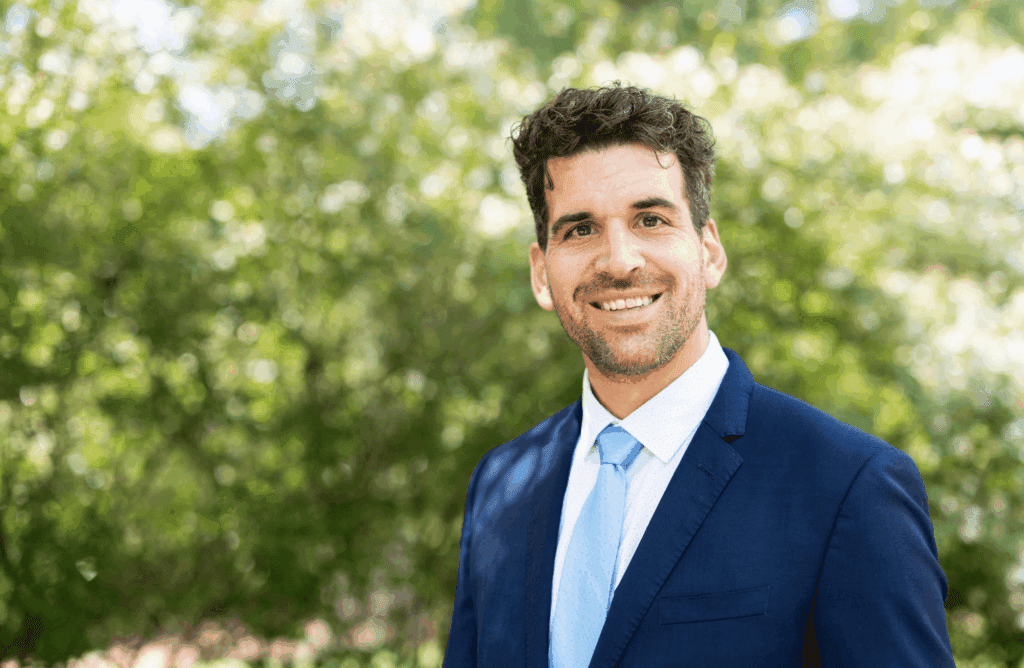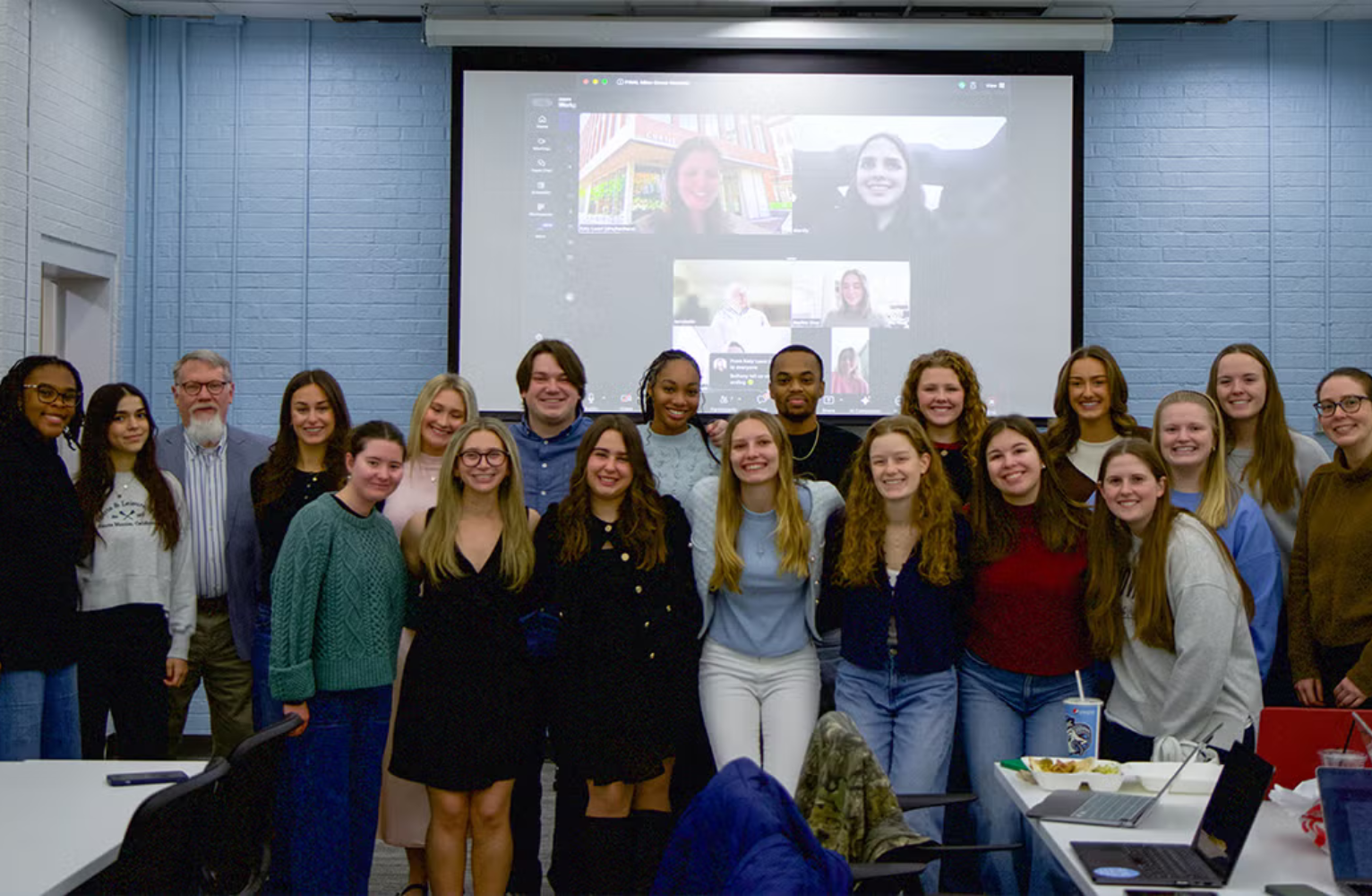
Carolina chemistry professor Frank Leibfarth is the 2025 Blavatnik National Awards for Young Scientists laureate in the chemical sciences, announced Oct. 7 in New York. Inspired by the Nobel Prizes, the Blavatnik National Awards are the largest unrestricted prizes for early-career researchers in the United States. Leibfarth’s award is $250,000.
This year’s other two laureates are Philip J. Kranzusch from Dana-Farber Cancer Institute, who won the prize in the life sciences category, and Elaina J. Sutley from the University of Kansas, who won the prize in the physical sciences and engineering category.
This year’s laureates were selected from a pool of 310 nominees representing 161 academic and research institutions across 42 states. The award is “designed to empower them with the freedom to continue to explore bold ideas, driving scientific innovation forward,” said Len Blavatnik, head of the Blavatnik Family Foundation.
“We are tremendously proud of professor Leibfarth for this well-deserved recognition of his groundbreaking work in the chemical sciences,” said Chancellor Lee H. Roberts. “Being named a Blavatnik laureate is an extraordinary achievement and a historic first for Carolina, reflecting the far-reaching impact of his research and innovation.”
Leibfarth, the Royce Murray Distinguished Term Professor of Chemistry and the inaugural Institute for Convergent Science faculty fellow, was awarded the prize “for pioneering approaches to upcycle plastic waste and remove toxic ‘forever chemicals’ from water by developing reactions and catalysts that selectively control the structure and function of polymers.”
“Frank is an incredible asset to the College of Arts and Sciences and the Carolina community,” said Jim White, the Craver Family Dean of the College of Arts and Sciences. “His intuitive scientific insights and passion for service are making an impact on the state of North Carolina and inspiring students, staff and fellow faculty alike. We’re delighted to see him receive this well-earned and remarkable honor.”
Leibfarth said he was especially proud to receive the award for his work at a state university. “Being able to do groundbreaking research that serves the students and citizens of the state is immensely fulfilling and is a responsibility I take seriously,” he said.
Leibfarth working to remove “forever chemicals” from our drinking water. ⬇️
Absorbing PFAS and upcycling plastic
Leibfarth studies polymers, or long chains of repeating chemical structures that make up materials from plastic and rubber to fingernails and DNA. Faced with the problem of toxic chemicals in river water, he began designing a hydrogel, the type of material used in diapers, to absorb PFAS.
Leibfarth got help to scale up his solution from the North Carolina Collaboratory and its NC Pure research project. Leibfarth and collaborator Orlando Coronell conducted pilot tests in four municipal water treatment utilities and cofounded a start-up company to implement the technology more broadly.
Leibfarth’s expertise in polymer chemistry also helped him see how the bonds of the common plastics polyethylene and polypropylene can be modified to produce new, more valuable materials, thereby “upcycling” the plastic waste.
Leibfarth has collaborated with numerous industrial partners to translate this work from a laboratory environment to a commercial setting, while working to addressing key economic and environmental limitations.
Honors and achievements
Some of Leibfarth’s other accolades include a Sloan Research Fellowship in Chemistry, a Cottrell Scholar Award, the UNC Tanner Award for Excellence in Undergraduate Teaching, a Barry Goldwater Scholarship, a Presidential Early Career Award and being named a “Brilliant 10” early-career scientist by Popular Science magazine.
“Since starting at UNC in 2016, I have had the privilege of working with some of the most talented and ambitious scientists internationally who care deeply about making plastics more sustainable and removing forever chemicals from our environment,” Leibfarth said. “The Blavatnik award recognizes their hard work and dedication during their educational journey.”
Read more about Leibfarth’s research.
Written by Calley Jones, UNC College of Arts and Sciences
Photo by Jeyhoun Allebaugh
Campaign for Carolina Impact
The invention of the filtration resin that removes PFAS from drinking water was kicked off with seed funding during the Campaign for Carolina. That funding, in addition to other grants from private foundations during the campaign, allowed Leibfarth and his team to pilot his research and attract millions in state funding. The Campaign for Carolina raised more than $5 billion for students, faculty, research and patient care at UNC-Chapel Hill.
Related Stories




